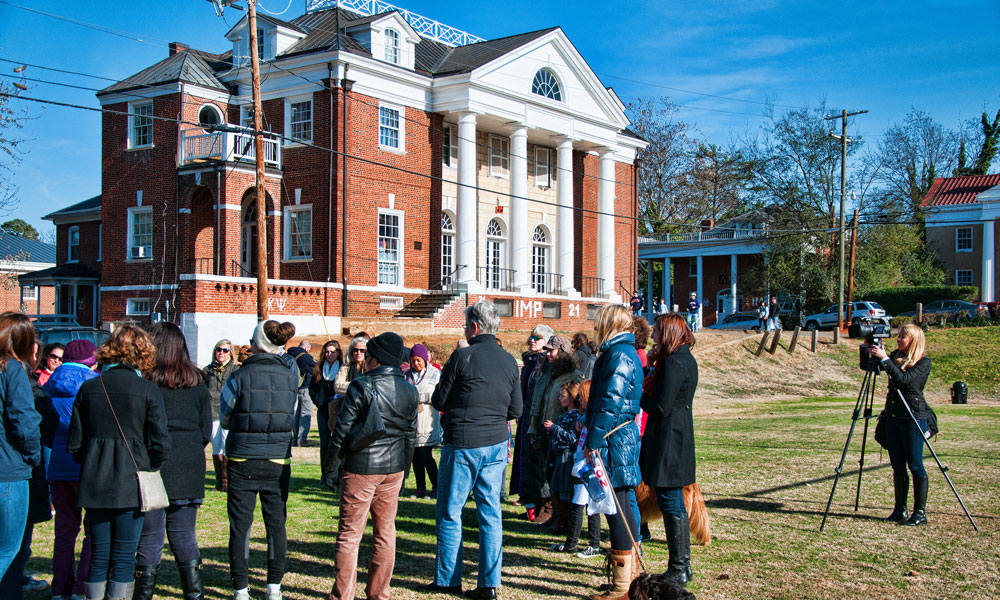
Greek Life Advocates, UVA at Odds Over Rolling Stone Controversy
After Rolling Stone backtracked on some of the details in its damning report describing a culture of sweeping sexual assault under the rug at the University of Virginia, national fraternity and sorority groups are demanding that the school lift its suspension on activities of all Greek Life organizations.
Three major organizations that represent the fraternities and sororities on college campuses across the country have called on the University of Virginia to lift the suspension of Greek Life activities that it imposed following the publication last month of a scathing Rolling Stone article.
Last week, Rolling Stone issued an apology and backed away from that article, which detailed an alleged 2012 rape of a UVA student at a fraternity party and described the school’s culture of sweeping sexual assault allegations under the rug. After the article’s release, UVA President Teresa A. Sullivan immediately suspended all Greek Life activities through the end of the fall semester. However, follow-up reporting by the Washington Post and other media outlets uncovered discrepancies in the victim’s original account and generated major questions about the credibility of the magazine’s report.
Rolling Stone’s editors acknowledged mistakes in reporting and editing the story. “In trying to be sensitive to the unfair shame and humiliation many women feel after a sexual assault, we made a judgment—the kind of judgment reporters and editors make every day,” Managing Editor Will Dana wrote in a note appended to the top of the story on the magazine’s website. “We should have not made this agreement with [the victim to not contact her alleged attacker], and we should have worked harder to convince her that the truth would have been better served by getting the other side of the story. These mistakes are on Rolling Stone, not on [the victim].”
The Fraternity and Sorority Political Action Committee (FSPAC), National Panhellenic Conference (NPC), and North-American Interfraternity Conference released a joint statement last weekend, asking UVA, given the new information, to lift the suspension on all Greek Life organizations. The “decision to suspend hurt the reputation of thousands of outstanding student leaders in our organizations who had nothing to do with the alleged events described in the article,” they said.
The groups also requested that the university apologize, release records showing the basis for the suspension decision, and outline the steps it will take to “restore the reputation of our groups and students at UVA.”
On Monday, the university declined those requests. In a statement, Sullivan said the purpose of the suspension was to give fraternity and sorority leaders time to “pause to identify solutions that would best ensure the well-being and safety of students.”
In their statement, FSPAC, NPC, and NIC also detailed the legislative steps that they plan to take to address the issue of sexual assault on college campuses. According to Politico, the groups have retained the services of former Senate Majority Leader Trent Lott and the firm Squire Patton Boggs to lobby Congress for changes in how schools address incidents of sexual assault.
“Congress needs to take a comprehensive approach to fixing these problems so that every case is handled in a manner that is fair, balanced and provides the full measure of constitutional protections to all parties,” Lott said in a statement to Politico.
The Greek Life groups said such cases should be taken out of the schools’ judicial processes and handed over to the criminal justice system. “We believe campus processes lack the necessary skill sets, resources, and capability needed to reach the right decision,” they said.
A protest at the UVA chapter of Phi Kappa Psi, the target of a partially retracted Rolling Stone article. (Bob Mical/Flickr)






Comments